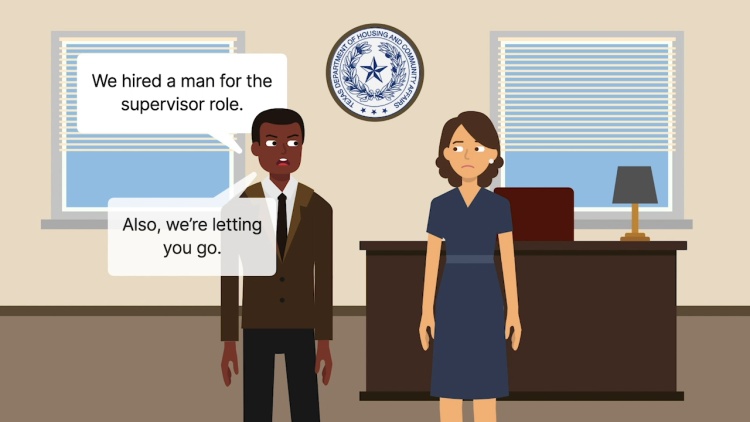Texas Department of Community Affairs v. Burdine
United States Supreme Court
450 U.S. 248, 101 S.Ct. 1089 (1981)
- Written by DeAnna Swearingen, LLM
Facts
Burdine (plaintiff) worked for the Public Service Careers Division (PSC) of the Texas Department of Community Affairs (TDCA) (defendant). Burdine applied for a Project Director position, which was not filled for six months. During reorganization, Burdine was fired. TDCA Executive Director Fuller hired a man as Project Director and retained another man as an employee. Burdine was later rehired into a different role with the TDCA with benefits similar to the Project Director role. Burdine sued under Title VII of the Civil Rights Act of 1964, 42 U.S.C. § 2000e et seq. (Title VII) in the United States District Court for the Western District of Texas, claiming that the promotion denial and firing were the result of gender discrimination. At trial, Fuller testified that all decisions were made, after a fair evaluation of employees and consultation with advisers, to increase efficiency. Fuller also testified that the fired employees “did not work well together.” The judge held that there was no proof of discrimination. The Court of Appeals for the Fifth Circuit affirmed the decision as to the promotion but reversed as to the firing on the ground that the TDCA had not rebutted the presumption created by Burdine’s prima facie case. The court of appeals emphasized that the defendant must demonstrate by a preponderance of the evidence that there was a valid, nondiscriminatory purpose for the employment decision. The case was remanded. The United States Supreme Court granted certiorari to consider the proper allocation of burdens in Title VII cases.
Rule of Law
Issue
Holding and Reasoning (Powell, J.)
What to do next…
Here's why 907,000 law students have relied on our case briefs:
- Written by law professors and practitioners, not other law students. 47,100 briefs, keyed to 996 casebooks. Top-notch customer support.
- The right amount of information, includes the facts, issues, rule of law, holding and reasoning, and any concurrences and dissents.
- Access in your classes, works on your mobile and tablet. Massive library of related video lessons and high quality multiple-choice questions.
- Easy to use, uniform format for every case brief. Written in plain English, not in legalese. Our briefs summarize and simplify; they don’t just repeat the court’s language.





